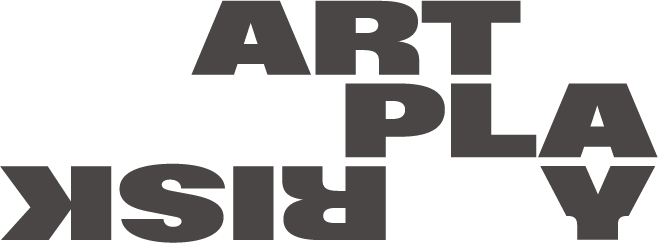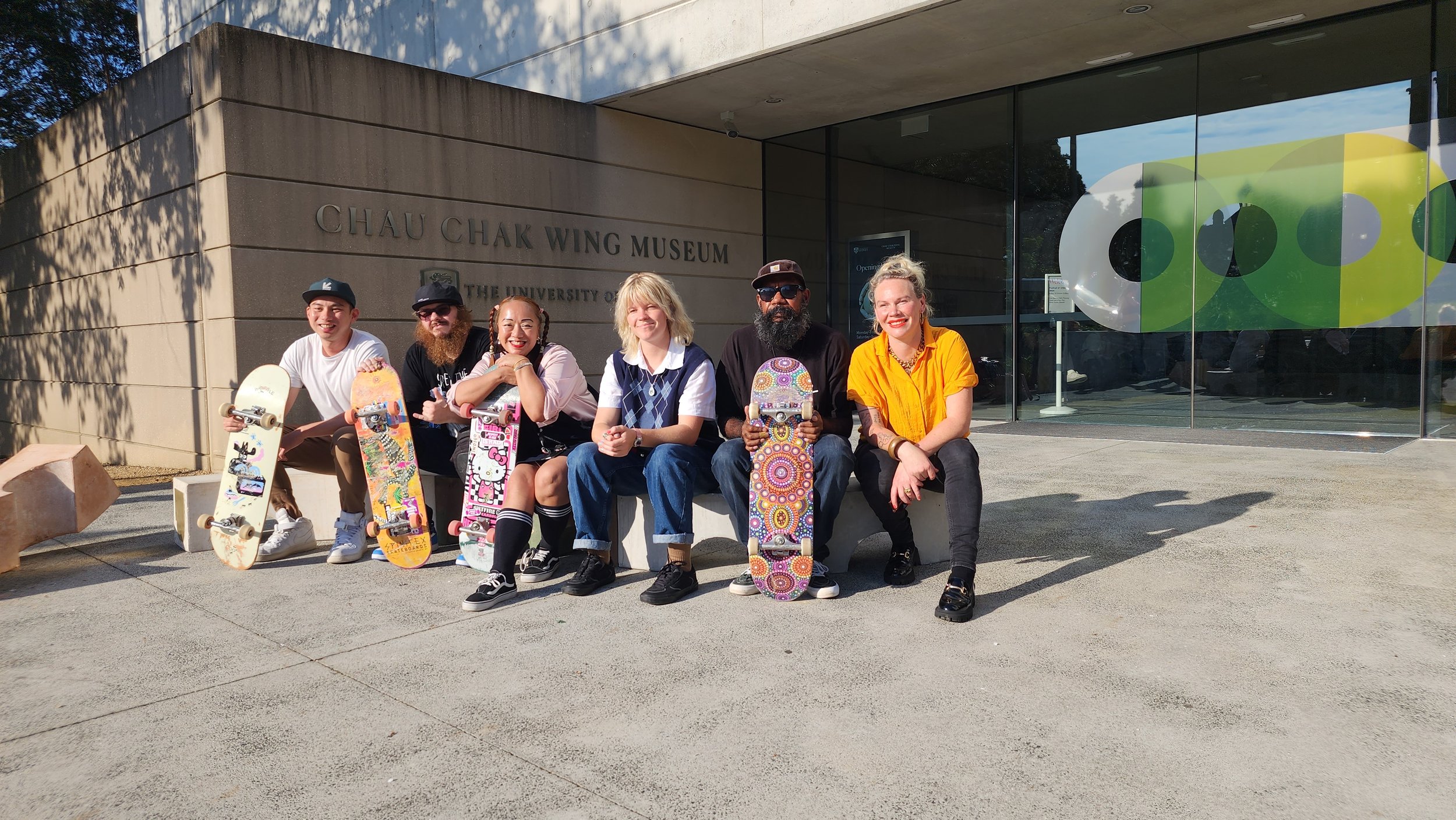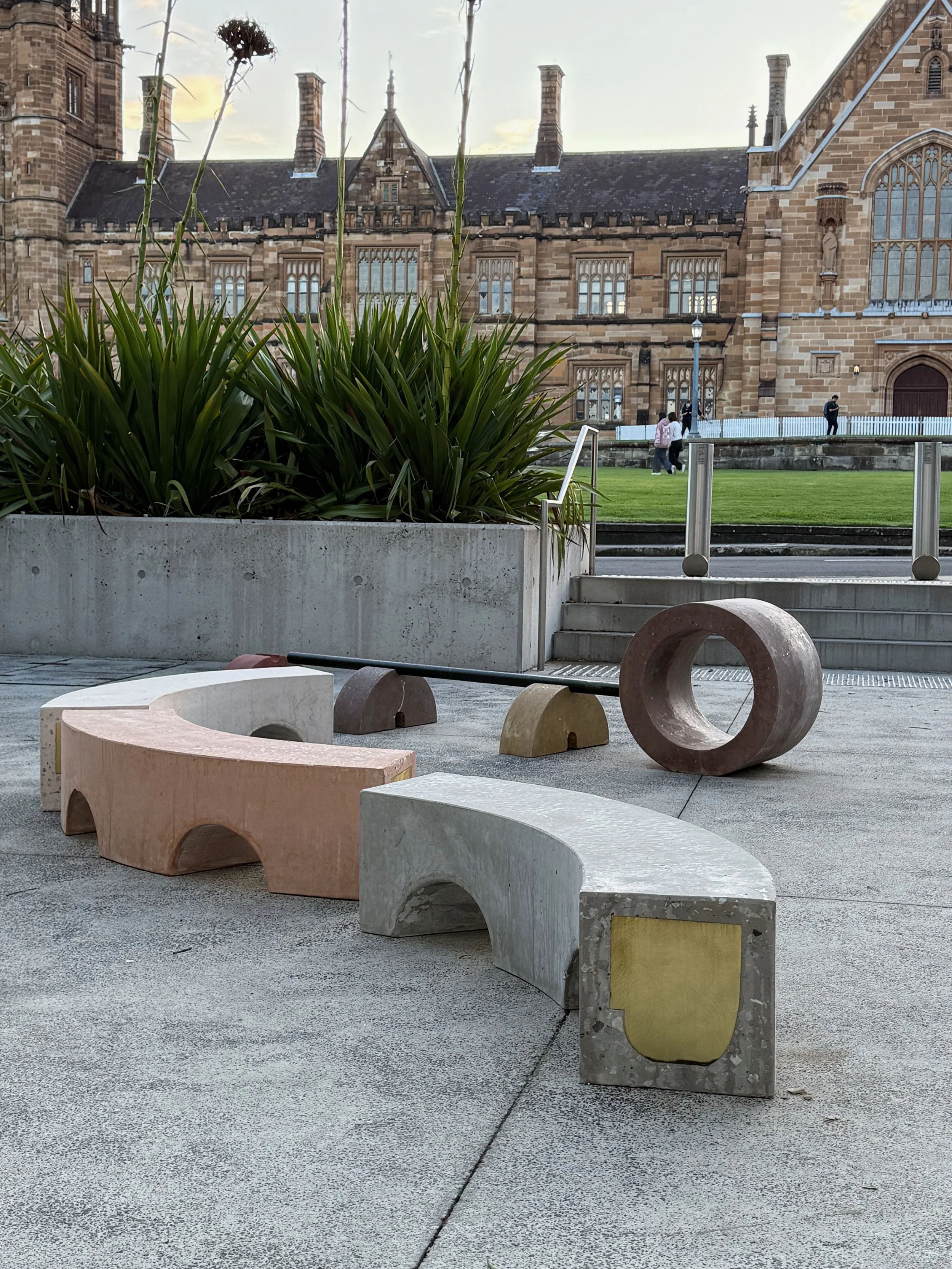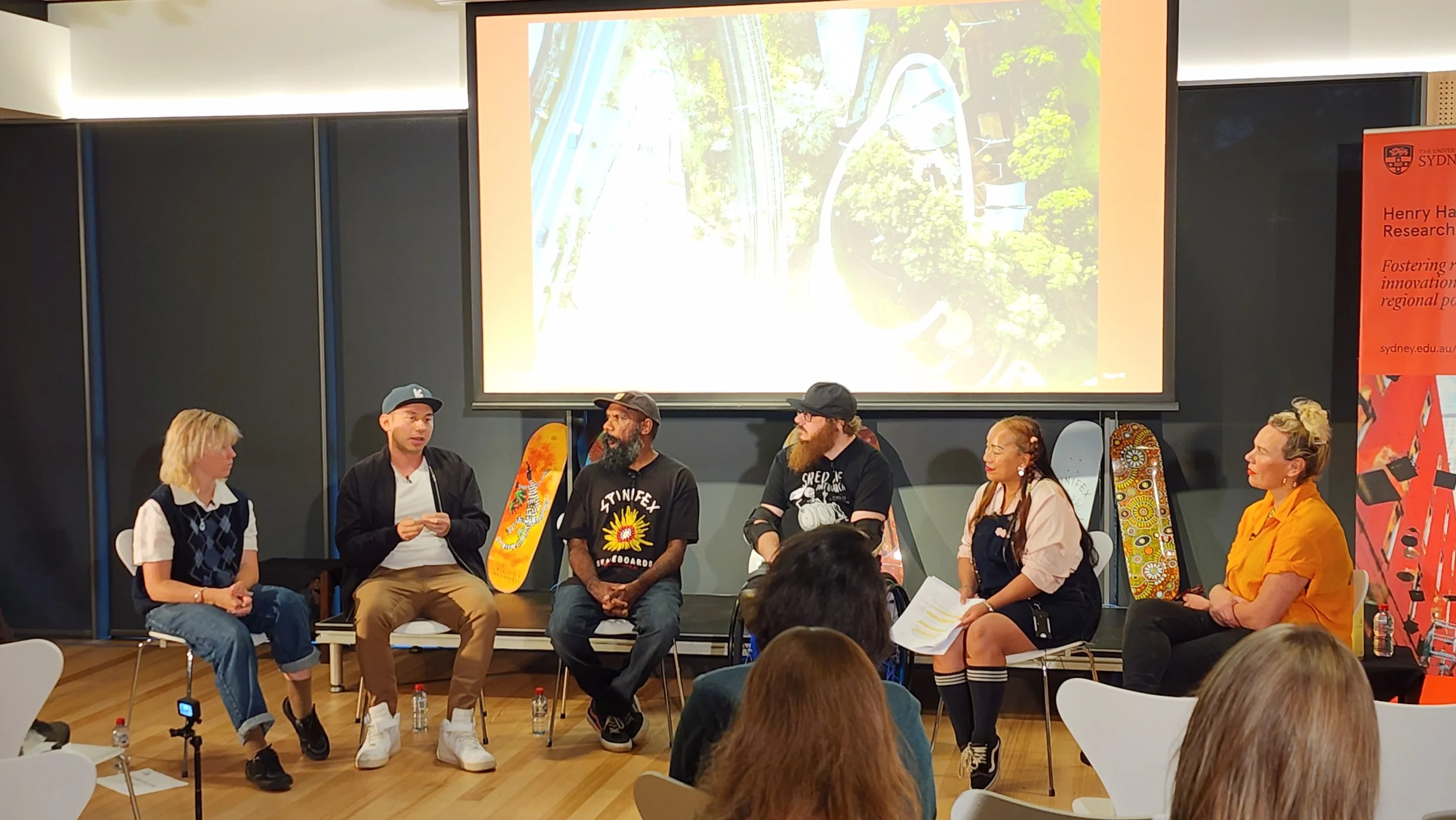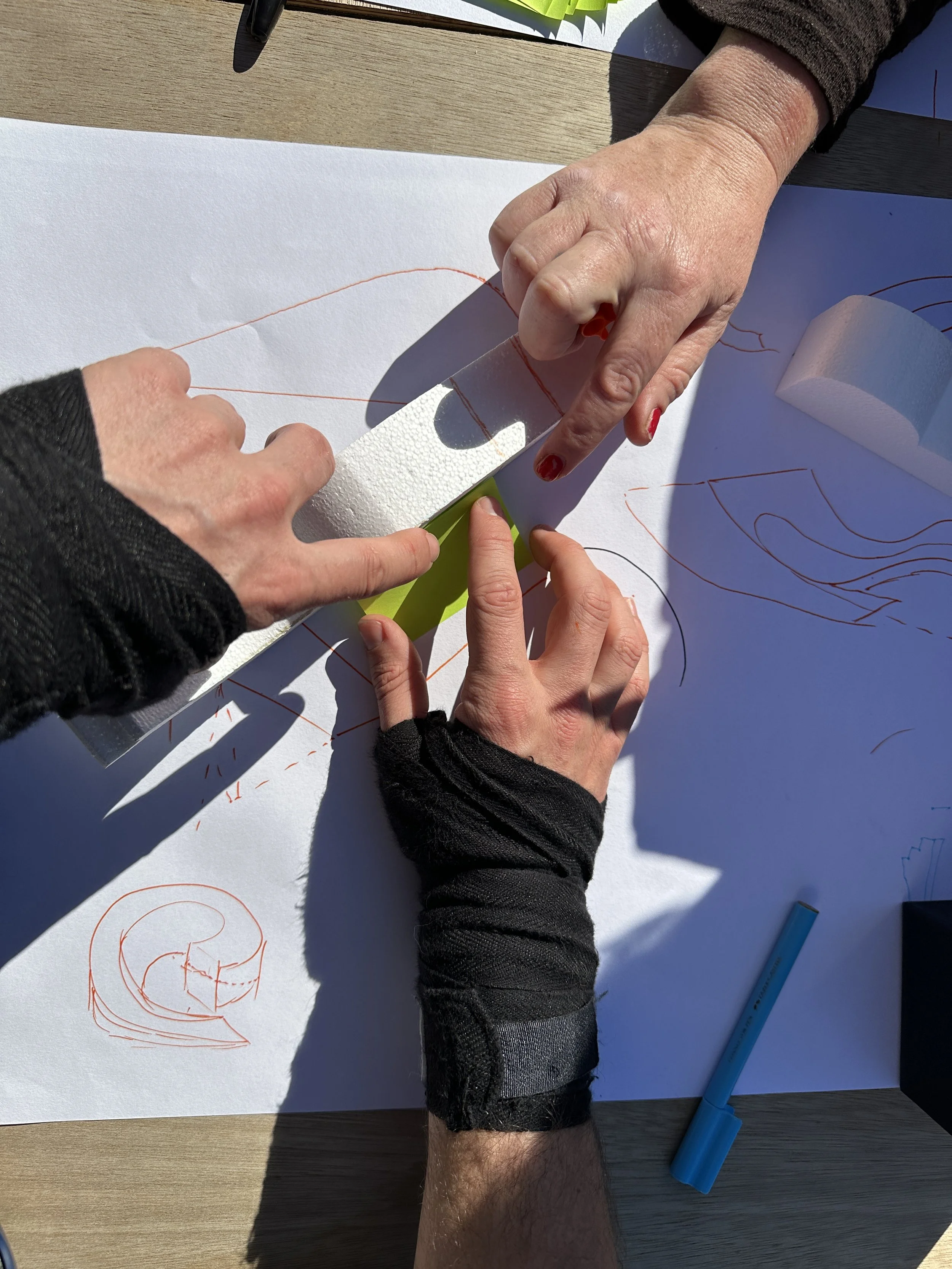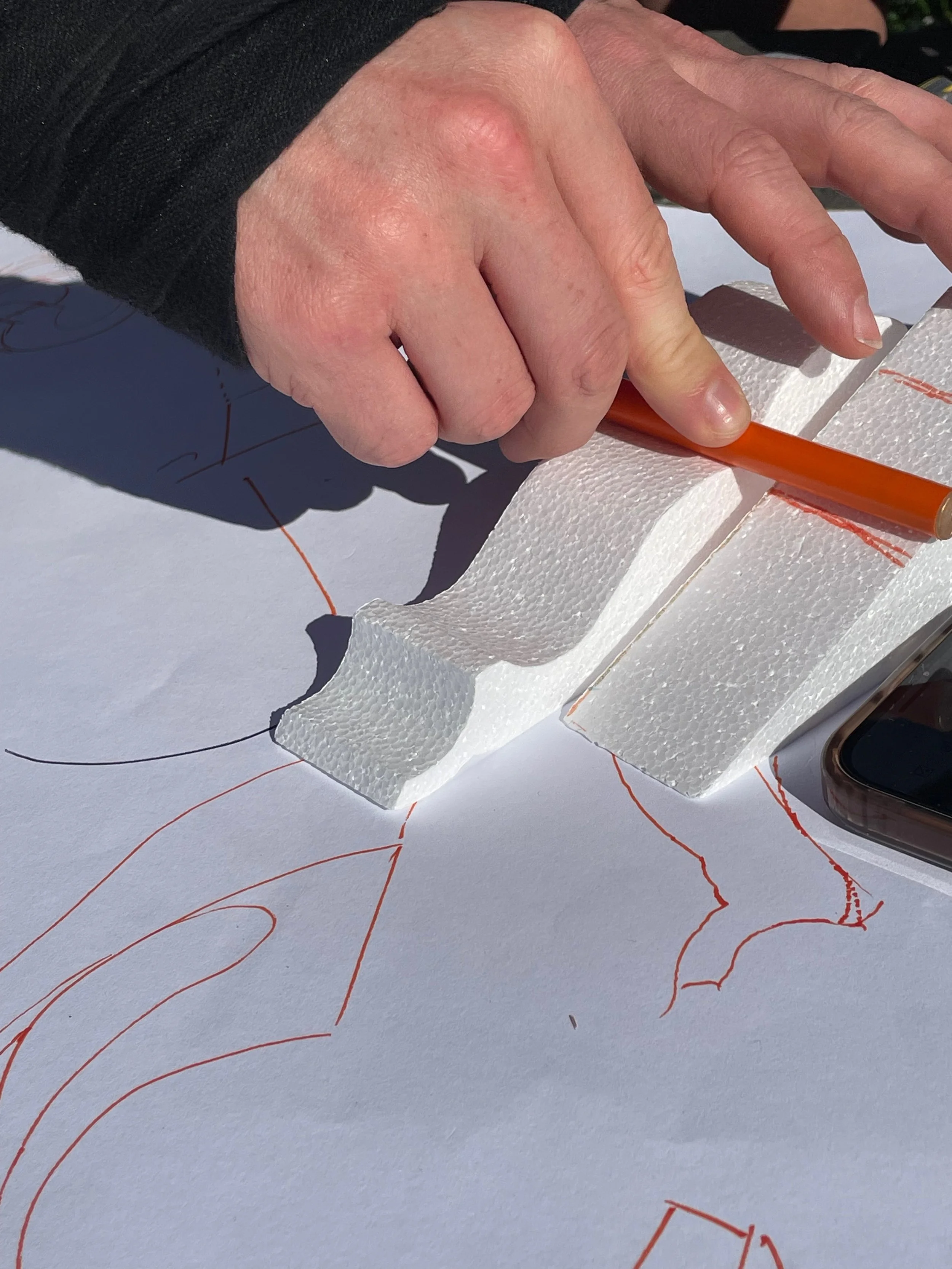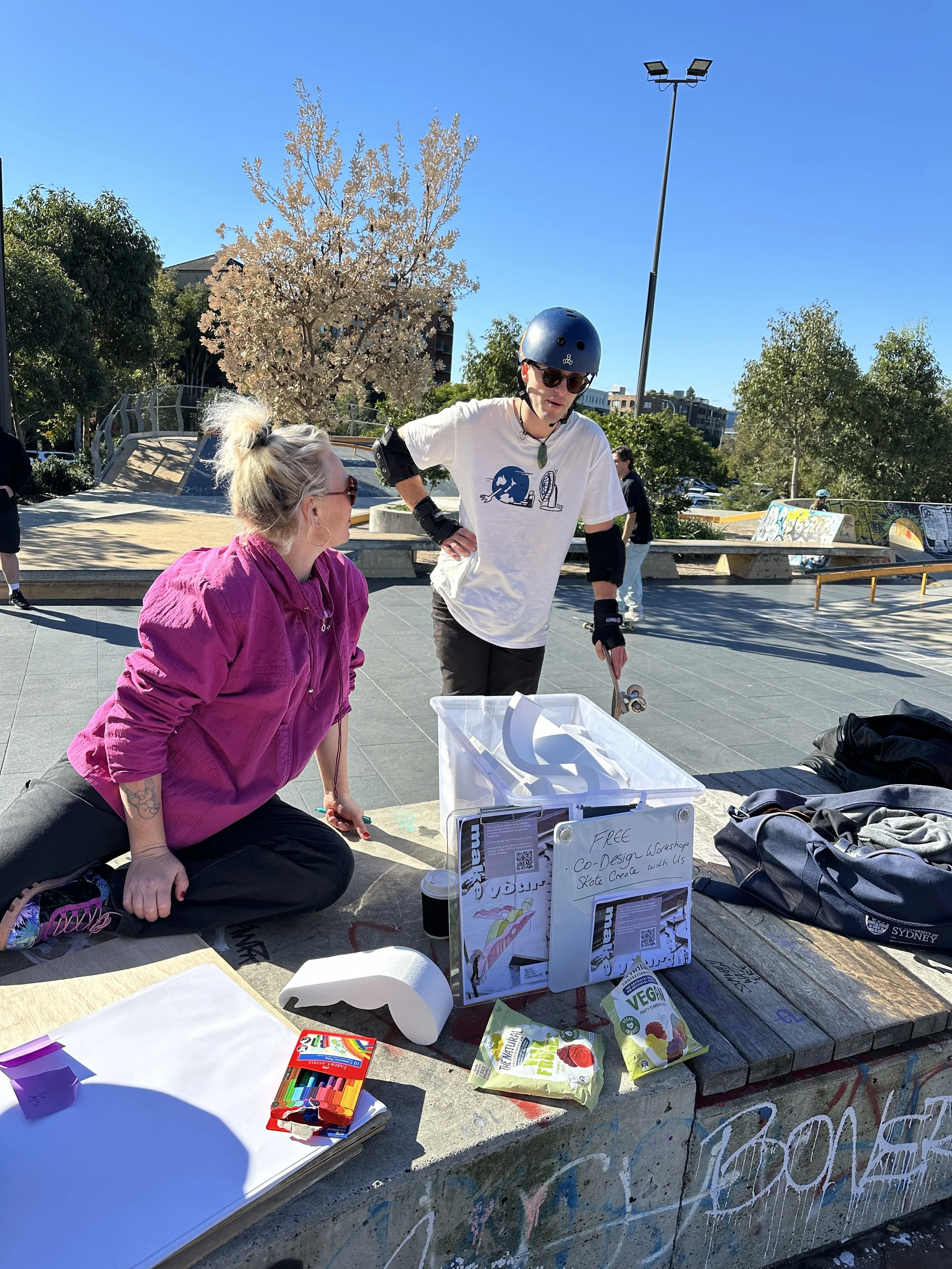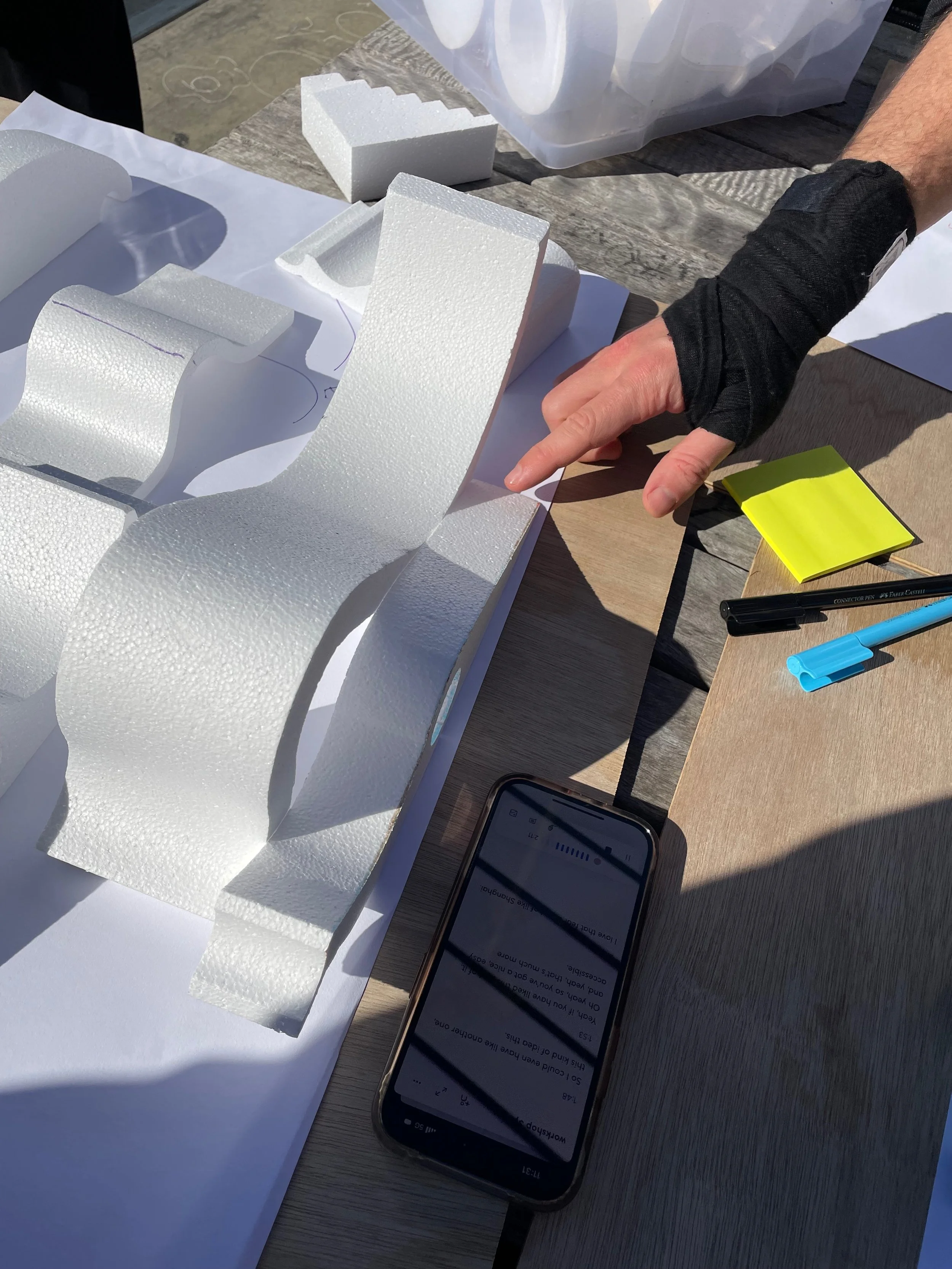Hosted by artist Sanné Mestrom, skater Indigo Willing, and architect Caitlin Roseby.
Art/Skate/Dots: Reimagining Urban Spaces Through Collaborative Design
RESEARCH REPORT
The Art/Skate/Dots research project represents a groundbreaking approach to urban design that challenges traditional notions of public space use and accessibility. Through innovative methodological frameworks and extensive community engagement, the project has demonstrated how collaborative design processes can transform urban environments into more inclusive, dynamic, and socially vibrant spaces.
Methodology and Innovation
The project developed a comprehensive six-stage focus group methodology that moved systematically from theoretical engagement to practical implementation. This innovative approach included:
Foundation Building: The research began with carefully structured orientation meetings focused on building rapport and trust with participants, particularly those from traditionally marginalized groups in urban planning processes. This foundation-building phase proved crucial for establishing authentic engagement and ensuring diverse perspectives were genuinely incorporated into the design process.
Visual Analysis Framework: The second phase introduced a distinctive visual analysis methodology where participants examined three categories of skateable spaces:
Conceptual designs pushing creative boundaries
Purpose-built skate objects
Naturally occurring “loose” spaces used for street skating
This comparative approach successfully bridged the gap between formal design thinking and lived experience, representing a key theoretical contribution to the field.
Digital Co-Design Innovation: The third phase pioneered an innovative online co-design process utilizing CAD technology. Specialised worksheets were distributed to participants before collaborative sessions, encouraging deep engagement with design possibilities. This preparation phase maximized the effectiveness of digital co-design sessions and has since been adopted by other researchers in the field.
Site-Specific Methodology: The project conducted field research at multiple locations, including Sydney Park and Federal Skate Park in Glebe, using physical maquettes to facilitate hands-on engagement with design concepts. This approach enabled participants to interact with potential designs in real-world contexts, providing invaluable insights for final implementations.
Gender-Sensitive Approaches: Through careful observation and analysis, the research team identified significant differences in how different gender groups engaged with the design process. This led to the creation of specialised women’s and non-binary focus groups, revealing crucial insights about gender-specific needs in urban space that traditional mixed-gender sessions had failed to capture.
Key Findings and Implications
The “Adultification” of Public Space: The research revealed how contemporary urban design often prioritizes adult consumers while viewing young people either as requiring protection or representing potential threats. This manifests through various exclusionary practices, including:
“Move-on” powers allowing police to disperse youth without cause
Mall policies restricting unaccompanied minors
Hostile architecture discouraging lounging or skateboarding
Curfews limiting youth presence in public spaces
The Impact of Neoliberalism: The study identified how increased privatisation and commodification of urban spaces has led to sanitised environments that prioritise consumption over genuine social interaction. Cities are increasingly designed for transit or commerce rather than leisure, rest, or play, diminishing opportunities for authentic community engagement.
Urban Sports as Social Catalyst: The research demonstrated how activities like skateboarding can serve as powerful tools for reclaiming public space and promoting social inclusion. These activities offer numerous benefits:
Engaging disengaged and disenfranchised youth
Promoting pro-social values and creativity
Improving mental health and social connectedness
Increasing natural surveillance and public safety
Creating vibrant, active urban environments
The Art/Skate/Dots project demonstrates how innovative methodological approaches to urban design can create more inclusive, dynamic, and socially vibrant public spaces. By challenging traditional notions of public space use and incorporating diverse perspectives through careful co-design processes, the project has established a new conversation for how creative practice research can be conducted and implemented in urban environments.
Festival of Urbanisms / Henry Halloran Research Trust Grey Spaces, Public Planning Places and Urban Play: Skate, create, educate Friday 18 October 2024 5:30 pm 7:00 pm Chau Chak Wing Museum
Festival of Urbanism 2024: Leading change-makers including Nick Hayes, founder of First Nations company Spinifex Skateboards (NT), Timothy Lachlan, founder of WCMX (wheelchair) and Adaptive Skateboarding, Australia (QLD), Poppy Starr Olsen, professional skater, artist and Olympian, Tokyo Games (NSW) and HY William Chan, architect and Councillor, City of Sydney. Chaired by Dr Indigo Willing, skateboarder, co-author of ‘Skateboarding, Power and Change’ (Palgrave Macmillan 2023), and Dr. Sanné Mestrom, artist and academic, University of Sydney.
Skate Park Visits
Sunday 16th June 2024
11am - 12:30pm
Sydney Park Skatepark Sunday 14th July 2024
11am - 12:30pm
Federal Skatepark, Glebe
*RSVP:* Your name, practice (e.g. skateboarder, roller skater, WCMX, BMX, designer, builder etc), city, gender and age (optional) indigo.willing@sydney.edu.au Our approach to striving for more inclusive future cities involves the process of co-design. Our co-design workshops and community interviews (both online and on-site, at Sydney Park) are great examples of how involving different people in the design process can lead to urban spaces that work for everyone. By bringing together artists with skateboarders, roller skaters, and BMX riders, the group came up with fresh, age-inclusive, and multi-user-led ideas for transforming Mestrom's sculptures into skate-obstacles that people of all skill levels can explore. Additionally, these focus groups, workshops, and site visits provided valuable experiences and perspectives that also inform the sociological and community-led resources being developed by her collaborator, Dr. Indigo Willing.
This approach is a win-win because it creates spaces that serve multiple purposes. Skaters (and all others from non-traditional urban sports) get to 'shred', ride, and grind on bespoke sculptures in the public domain, while non-skaters can still appreciate the art and the unique cultural and intellectual dimension the sculptures bring to the area. This co-design project is all about designing places that encourage people to interact, express themselves, and have fun.
What's really special about this participant-led co-design process is that it gives many in the community a sense of ownership over the space they are regularly using but rarely given a sense of civic agency and a say in its design. When skaters (et al.) get to be a part of designing skateable-obstacles - creatively made and aesthetically striking public art, not generic obstacles seen across multiple skateparks - they're more likely to take pride in the area and remind and encourage their fellow users to do the same. This can lead to stronger connections between people who are non-skaters and also across creative sports, fostering a more tight-knit community overall, as well as attracting users that might not normally approach traditional skate parks.
The ideas from our focus groups, online and on-site workshops, and upcoming interviews will be used by Dr. Mestrom and Dr. Willing in various urban design projects in both cities and regional areas. We foresee our collaborative research project adding important arts, community-led, and culturally informed contributions to strategic spatial and social activities of small to medium creative sport events, as well as international ones such as the Olympic Games. By actively seeking out opinions from different groups - like kids, seniors, athletes, including adaptive athletes/people with disabilitis, artists- we can create spaces that cater to a wide range of needs and wants. This inclusive approach is all about promoting fairness and ensuring everyone feels welcome in the public domain.
